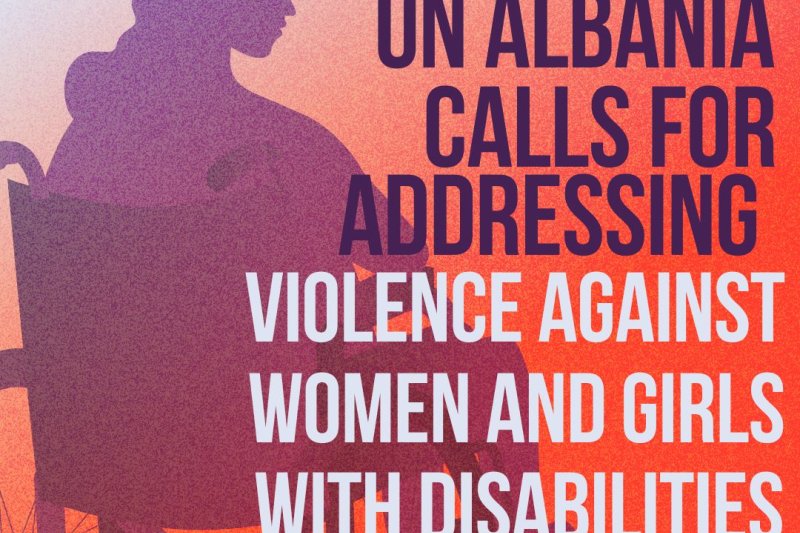UN Albania Calls for Addressing Violence Against Women and Girls with Disabilities
The United Nations System in Albania is calling for action to address violence faced by women and girls with disabilities in the country. Despite significant legal and policy frameworks in place, women and girls with disabilities continue to face multiple forms of violence, compounded by stigma, discrimination, and limited access to vital support services.
In response to this critical issue, the United Nations System in Albania calls for action by the legislative, central, and local government, the judiciary, national human rights institutions, service providers, civil society organizations (CSOs), and the international community.
Some of the main recommendations include strengthening the implementation of the existing legislation and further alignment with international standards; ensure accessibility of services and funding for organizations supporting survivors. Training service providers on disability awareness, fostering public awareness, and fostering inclusion in decision-making are critical part of the response.
Globally, women and girls with disabilities are up to four times more likely to experience intimate partner violence with rates rising to ten times higher in regions like Southeast and Eastern Europe. A recent survey highlights that women with disabilities in these areas experience significantly higher rates of physical, sexual, and psychological abuse, including partner and non-partner violence and sexual harassment.
In Albania violence against women and girls with disabilities is often hidden and exacerbated by deeply ingrained social stigma and stereotypes, that isolate them. This reduces opportunities for education, employment, and social interaction, and contributes to further economic dependency and poverty. Additionally, women and girls with intellectual disabilities or mental health conditions face even a higher risk of abuse, often perpetrated by family members, caregivers, and service providers.
Women and girls with disabilities face withheld medication, forced home isolation, and threats of abandonment or institutionalization, often by caregivers or family members. Unfortunately, many service providers lack the necessary skills and capacities to effectively address these issues, resulting in inadequate responses and continued isolation.
Although Albania’s legal and policy frameworks offer some protections for persons with disabilities from gender-based violence, there remain significant gaps in implementation and the specific consideration of the intersectional challenges faced by women with disabilities. GREVIO, the Group of Experts that monitors the implementation of the Council of Europe Istanbul Convention on preventing and combating violence against women and domestic violence, has highlighted that services are often inaccessible, particularly for women with mental health issues, and that there are no measures in place to ensure accessibility in crucial spaces such as courthouses and police stations.
Civil society organizations (CSOs) in Albania are working tirelessly to advocate for the rights of women with disabilities, offering legal support and raising awareness about their needs. However, bureaucratic barriers and limited access to state funding have led to chronic underfunding of these organizations, restricting their capacity to provide necessary services to women with disabilities, particularly survivors of violence.
The United Nations System in Albania calls for a collective and urgent response to ensure that women and girls with disabilities are not left behind. It is critical that all stakeholders, from government bodies to civil society, work together to create a society where the rights and dignity of women with disabilities are respected, protected, and promoted.













